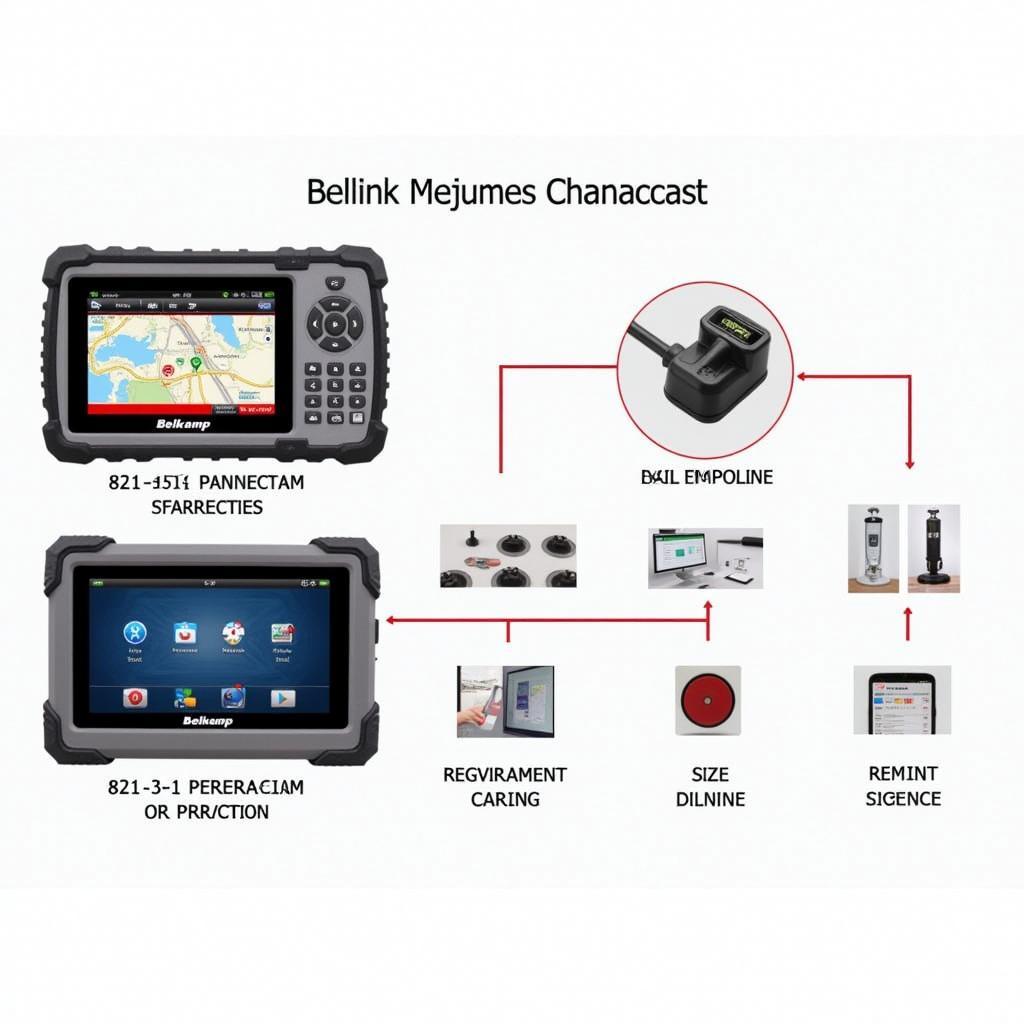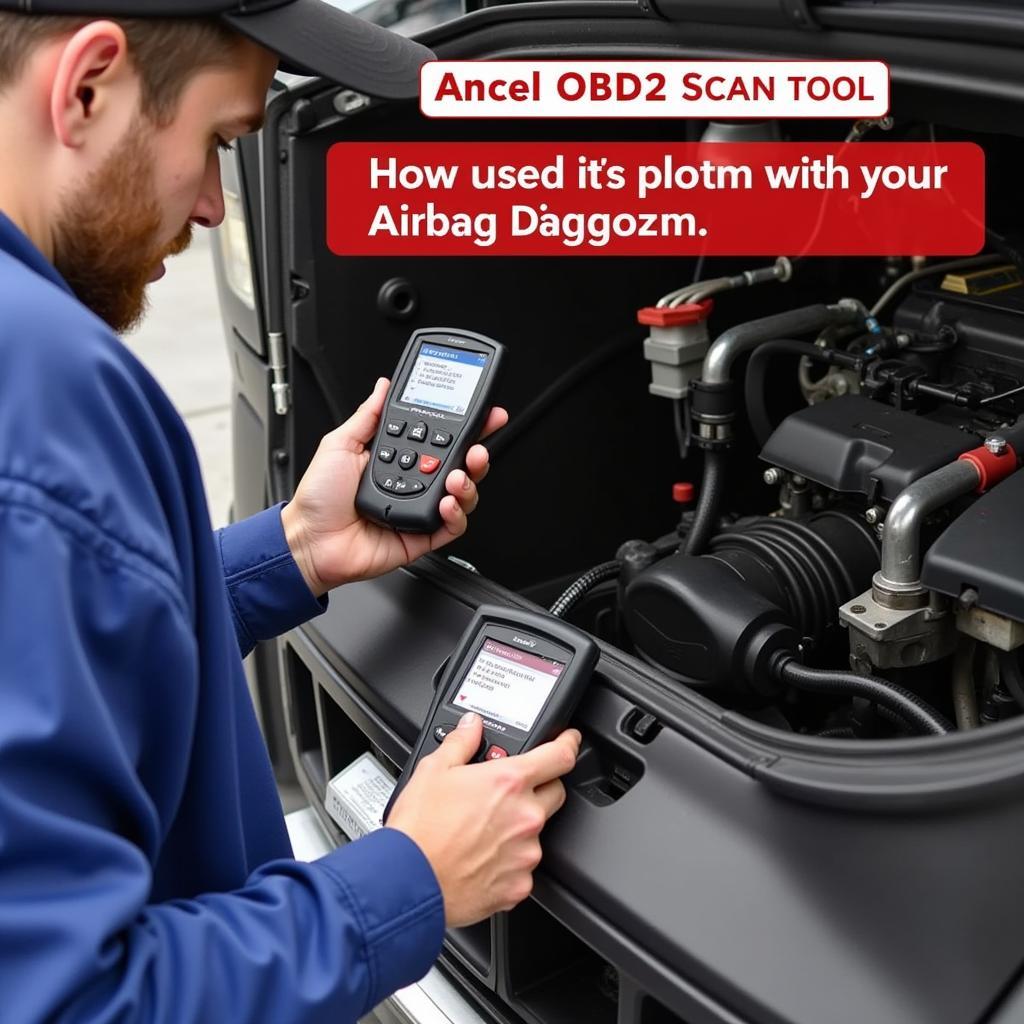In the ever-evolving world of automotive technology, having a reliable and capable automotive scan tool is no longer a luxury but a necessity. Whether you’re a seasoned mechanic, a DIY enthusiast, or a car owner looking to empower yourself, the right scan tool can be your key to unlocking the secrets hidden within your car’s computer system. But with countless options flooding the market, finding the Best Rated Automotive Scan Tool for your specific needs can feel like navigating a labyrinth. This comprehensive guide will equip you with the knowledge to make an informed decision.
Understanding Your Needs: The First Step to Finding the Right Scanner
Before diving into the world of automotive scan tools, it’s crucial to take a step back and assess your individual requirements.
Ask yourself these key questions:
- What is your level of automotive expertise? Are you a beginner, a DIY enthusiast, or a professional mechanic?
- What types of vehicles will you be working on? Different scan tools specialize in specific makes and models.
- What is your budget? Scan tools range from affordable options to high-end professional-grade devices.
- What features are most important to you? Consider factors like code reading and clearing, live data streaming, bi-directional control, and special functions.
Once you have a clear understanding of your needs and priorities, you can narrow your search and focus on the scan tools that align with your specific requirements.
Decoding the Jargon: Essential Scan Tool Features Explained
Navigating the world of automotive scan tools can feel overwhelming with its own language of technical terms and acronyms. Let’s demystify some of the essential features:
1. Code Reading and Clearing: At its core, an automotive scan tool should be able to read and clear diagnostic trouble codes (DTCs). These codes, often displayed as a combination of letters and numbers, act as your car’s way of signaling a problem.
2. Live Data Streaming: This feature provides real-time insights into your vehicle’s sensor data, including engine RPM, coolant temperature, oxygen sensor readings, and more. Live data streaming is invaluable for diagnosing intermittent issues and monitoring sensor performance.
3. Bi-Directional Control: Also known as active testing, bi-directional control allows you to interact with your vehicle’s systems directly. This feature enables you to activate components like solenoids, actuators, and relays to test their functionality and pinpoint faults.
4. Special Functions: Advanced scan tools often come equipped with special functions tailored to specific makes and models. These functions can range from resetting oil life monitors and electronic parking brakes to performing ABS bleeding and DPF regeneration.
Beyond the Basics: Exploring Advanced Features
As you delve deeper into the world of automotive scan tools, you’ll encounter advanced features that can significantly enhance your diagnostic capabilities.
1. Wireless Connectivity: Bluetooth and Wi-Fi connectivity have revolutionized the way we use scan tools. Wireless capabilities allow you to access live data, record logs, and even perform diagnostics remotely.
2. Cloud Integration: Cloud-based platforms offer a centralized hub for storing vehicle data, accessing repair information, and collaborating with other technicians. This feature is particularly valuable for workshops and professionals dealing with a high volume of vehicles.
3. Advanced Coding and Programming: For experienced users, scan tools with coding and programming capabilities open up a world of possibilities. These tools enable you to customize vehicle settings, update software, and even perform key programming.
The Power of Choice: Navigating Different Types of Scan Tools
The market is teeming with a diverse range of automotive scan tools, each catering to specific needs and budgets. Let’s break down the most common types:
1. Basic Code Readers: As the name suggests, basic code readers primarily focus on reading and clearing DTCs. These entry-level devices are ideal for car owners and DIY enthusiasts seeking a budget-friendly option for basic diagnostics.
2. OBD-II Scanners: Stepping up from basic code readers, OBD-II scanners offer a wider range of features, including live data streaming, freeze frame data, and emissions readiness checks. These versatile devices strike a balance between affordability and functionality, making them suitable for both car owners and aspiring DIYers.
3. Professional-Grade Scan Tools: For professional mechanics and workshops, professional-grade scan tools are indispensable. These high-end devices boast advanced features like bi-directional control, special functions, coding capabilities, and extensive vehicle coverage.
4. Mobile Device-Based Scanners: The rise of smartphones and tablets has paved the way for mobile device-based scanners. These compact devices connect to your smartphone or tablet via Bluetooth or Wi-Fi, transforming your device into a powerful diagnostic tool.
Navigating the world of automotive scan tools doesn’t have to be daunting. By understanding your needs, familiarizing yourself with key features, and exploring the different types of scanners available, you can confidently choose the best-rated automotive scan tool that empowers you to take control of your vehicle’s diagnostics. For those seeking specific solutions, exploring options like a car scanner vs torque, crank sensor relearn scan tool cts, or even a bmw scan tool android can provide tailored insights.
Making an Informed Decision: Choosing the Right Scan Tool for You
Choosing the best-rated automotive scan tool is an investment in your vehicle’s well-being. Remember to prioritize your specific needs, budget, and desired features. Don’t hesitate to consult online reviews, compare different models, and seek recommendations from trusted mechanics or automotive enthusiasts.
Need expert assistance in finding the perfect scan tool? Contact ScanToolUS at +1 (641) 206-8880 or visit our office at 1615 S Laramie Ave, Cicero, IL 60804, USA. We’re here to guide you through the process and empower you to make an informed decision.


